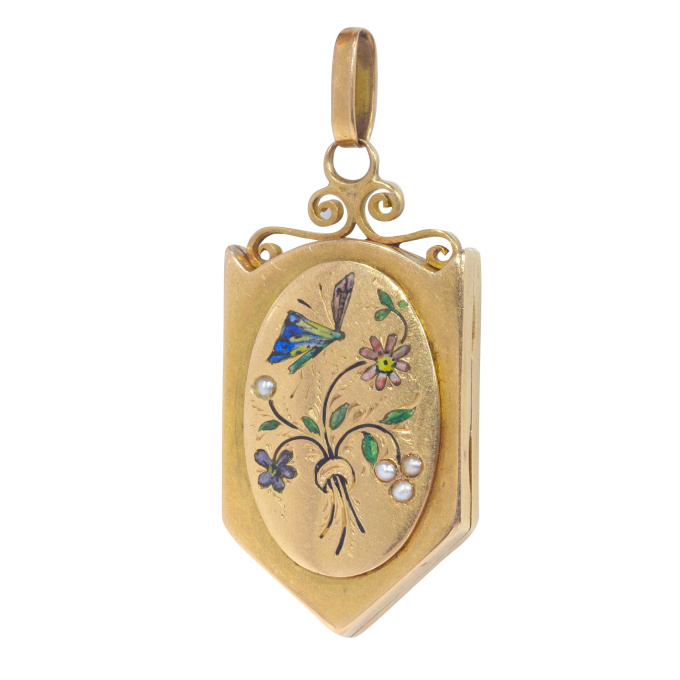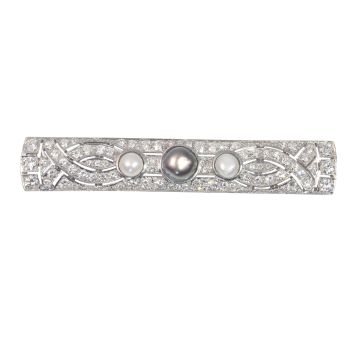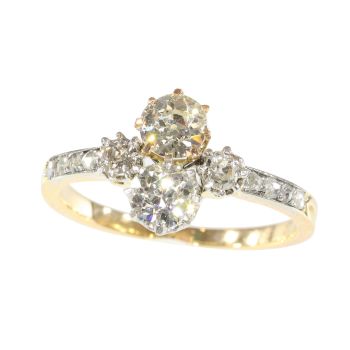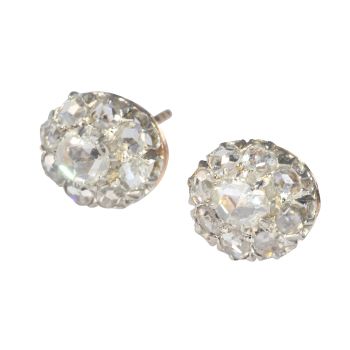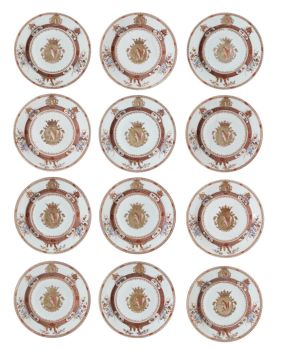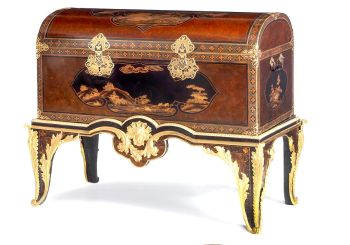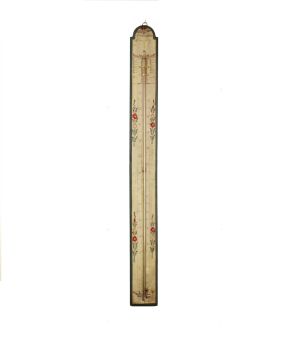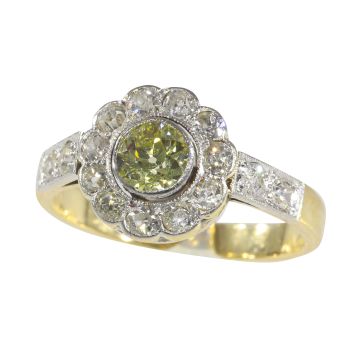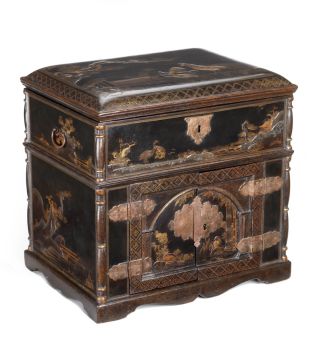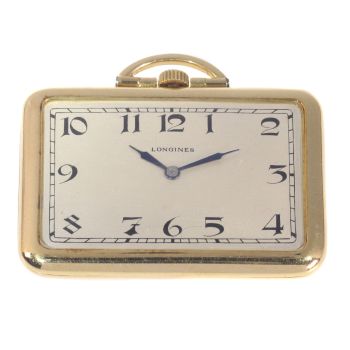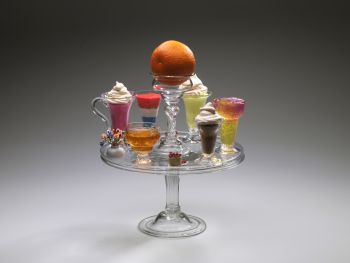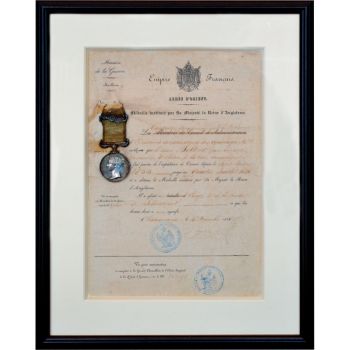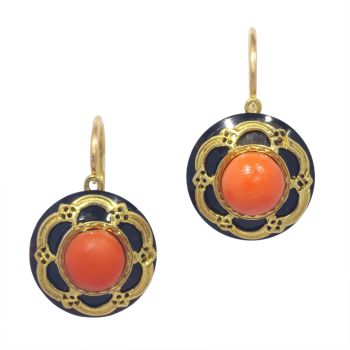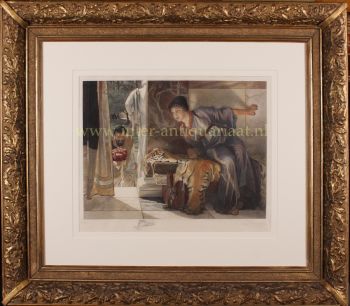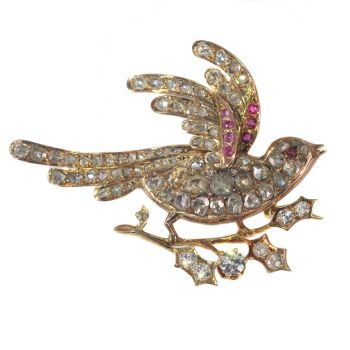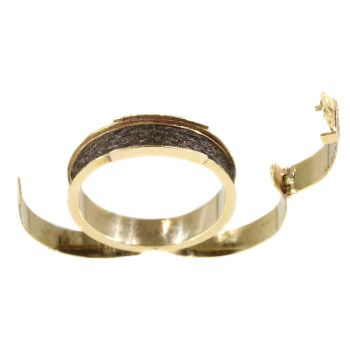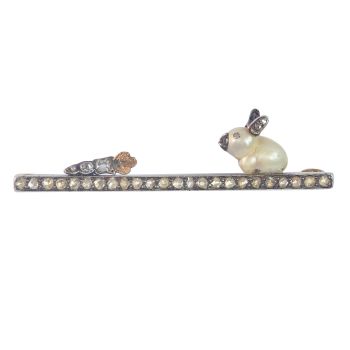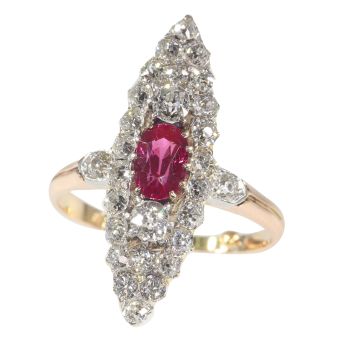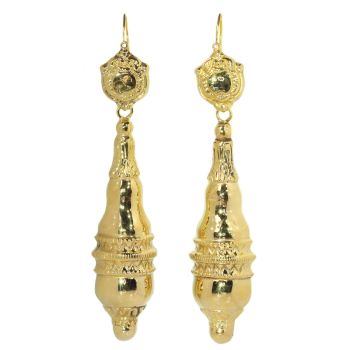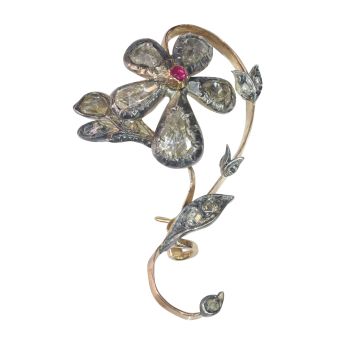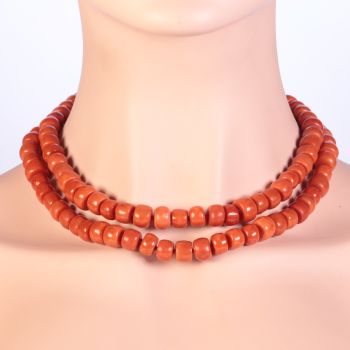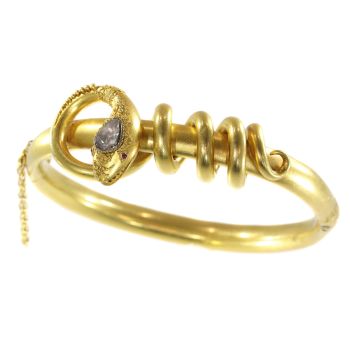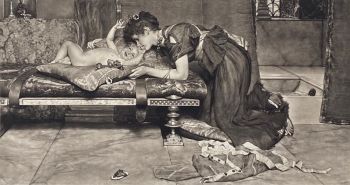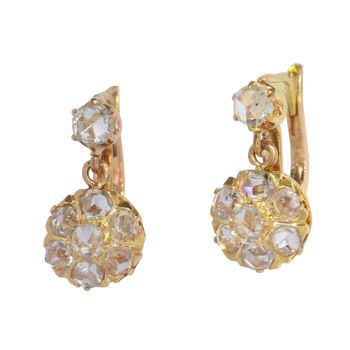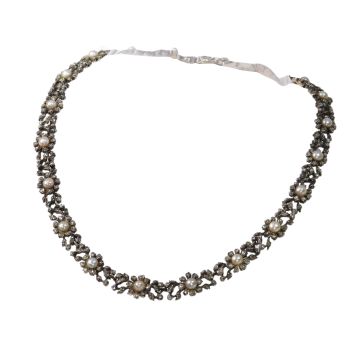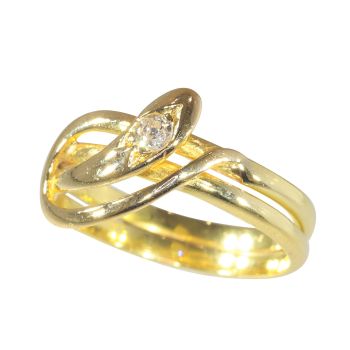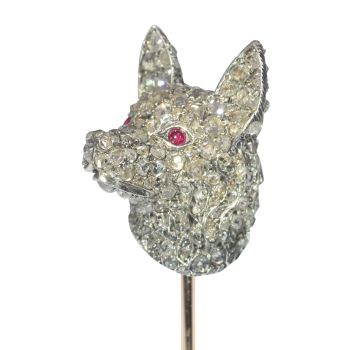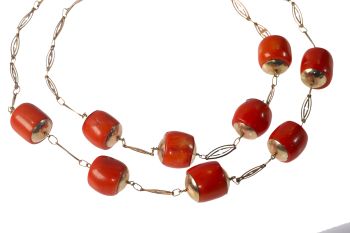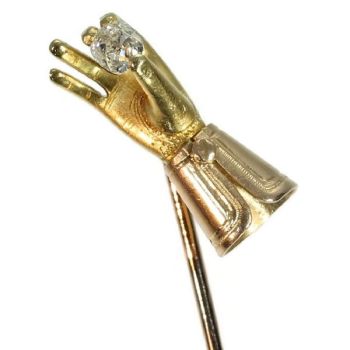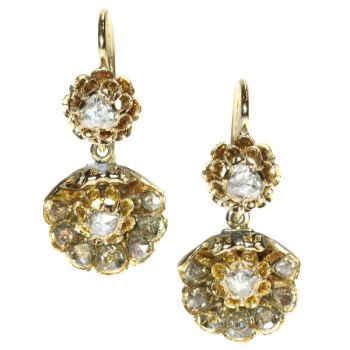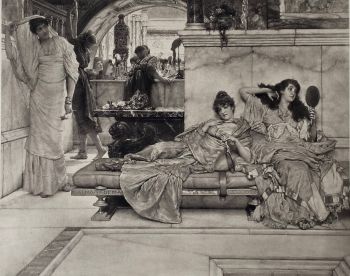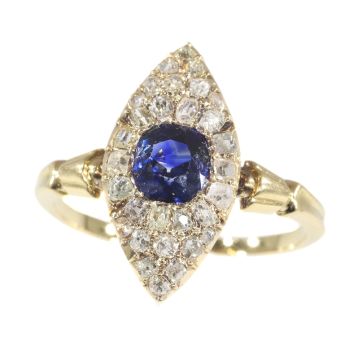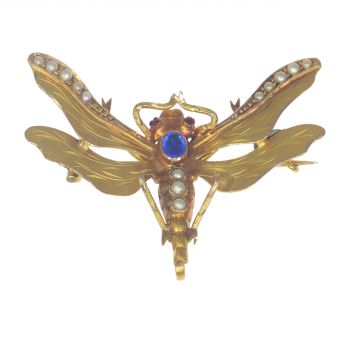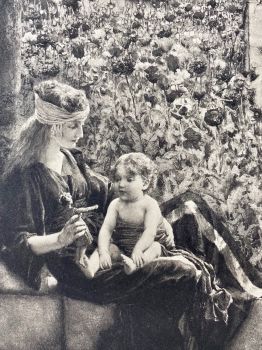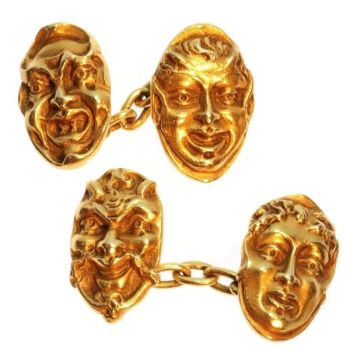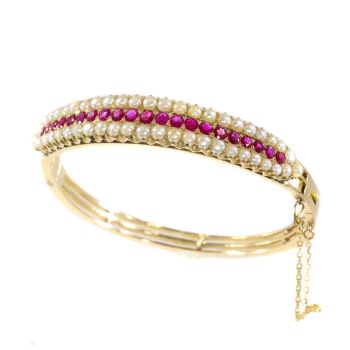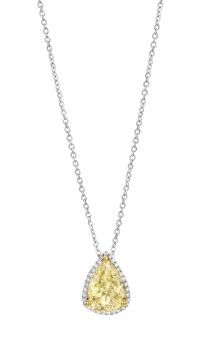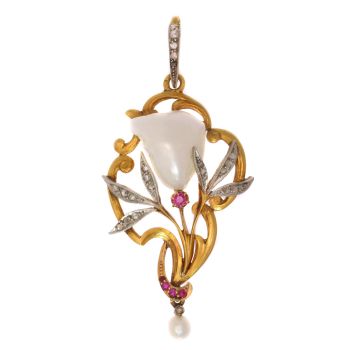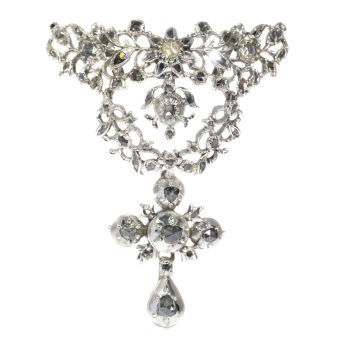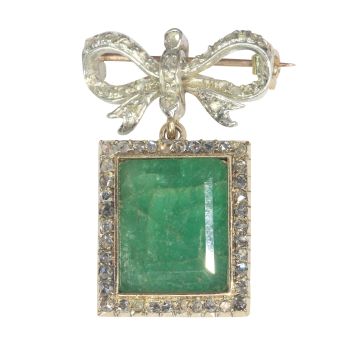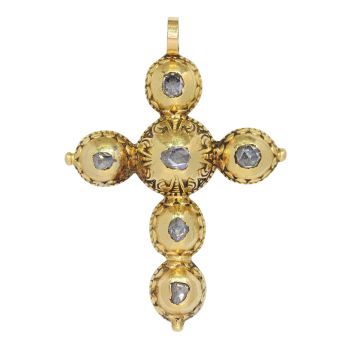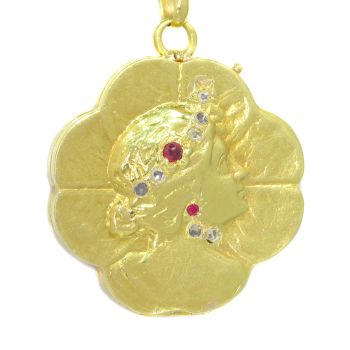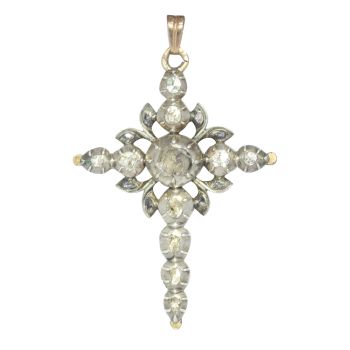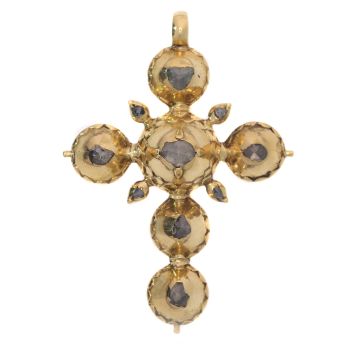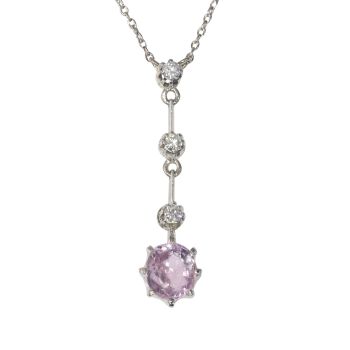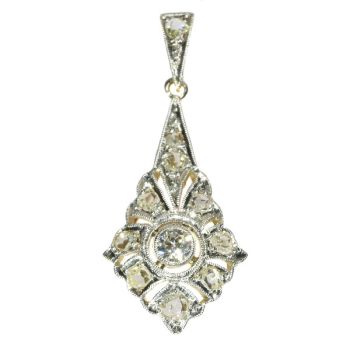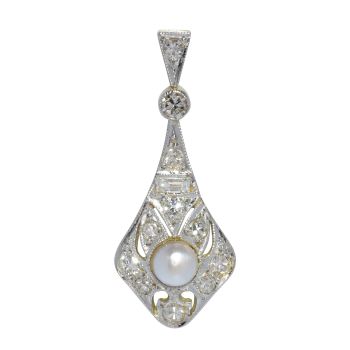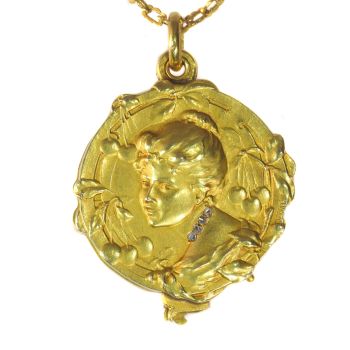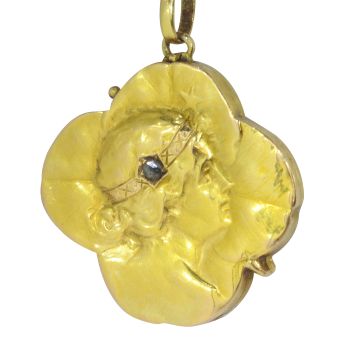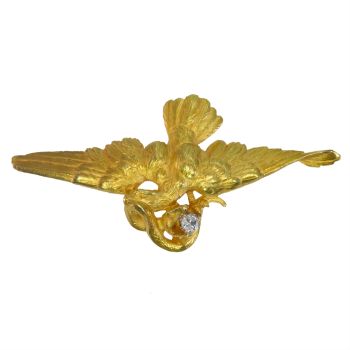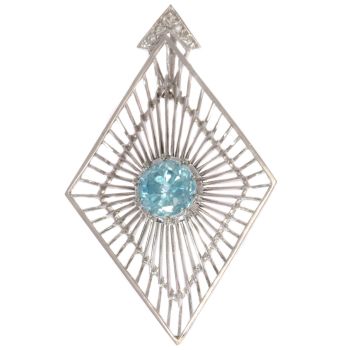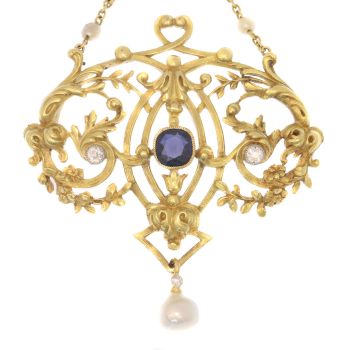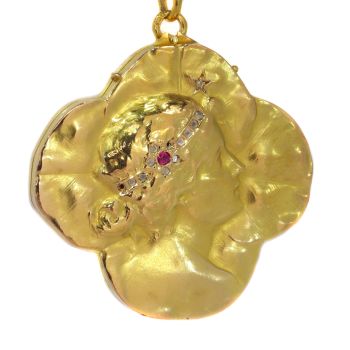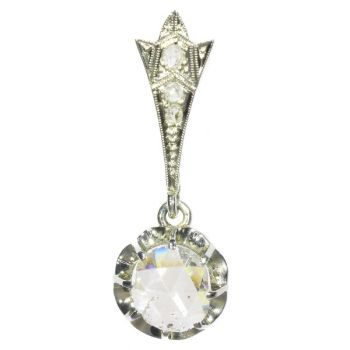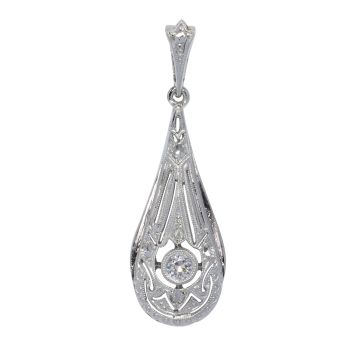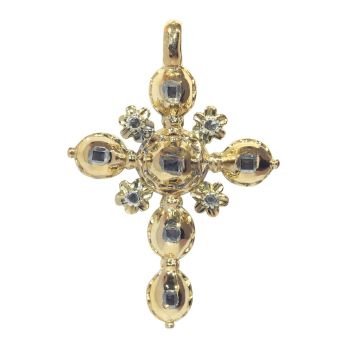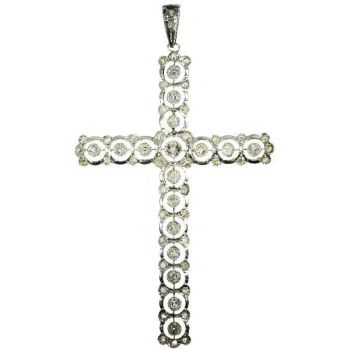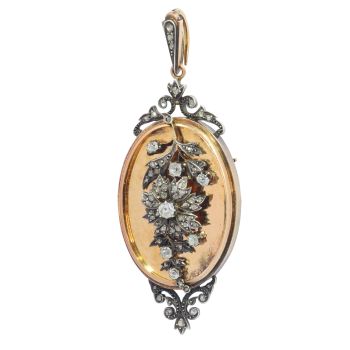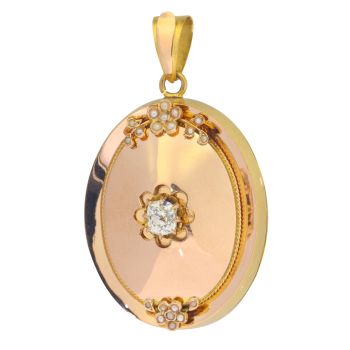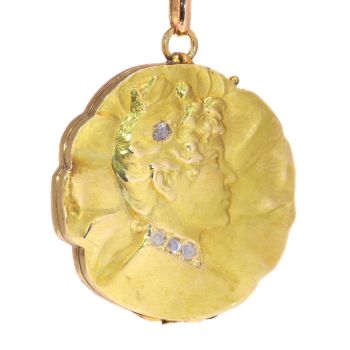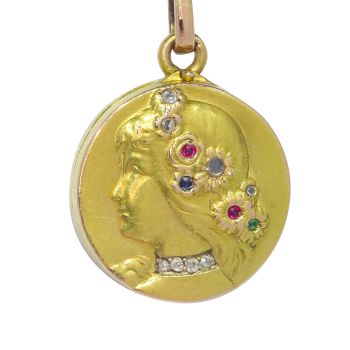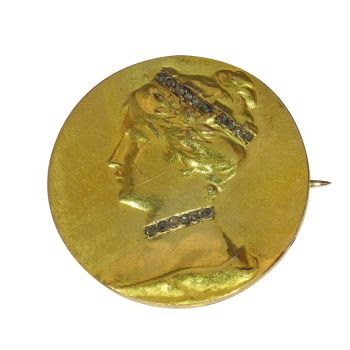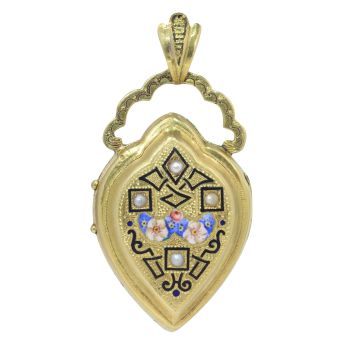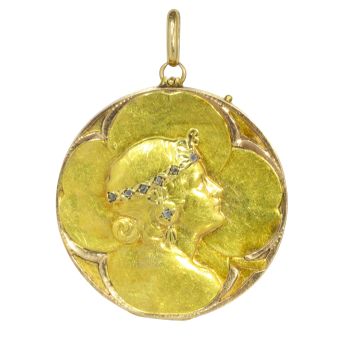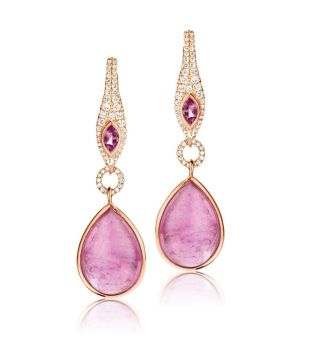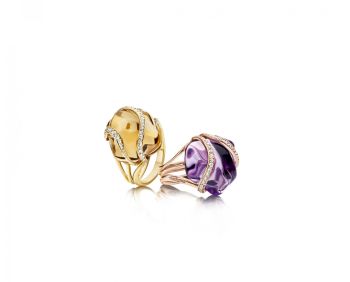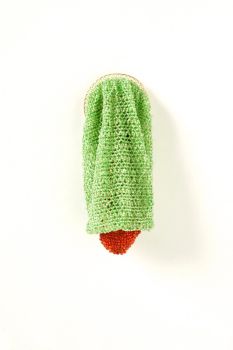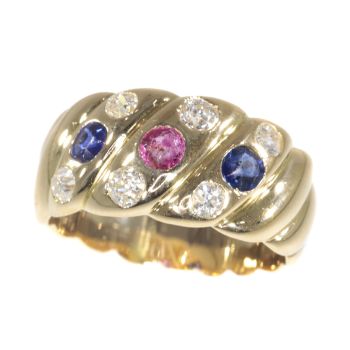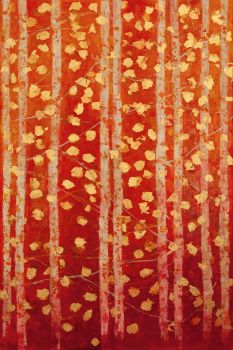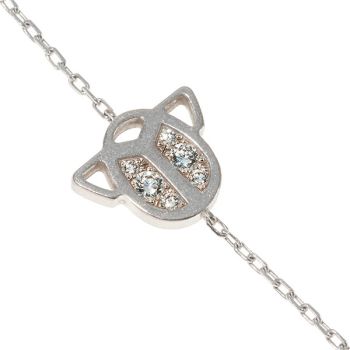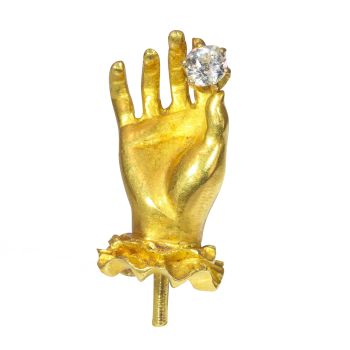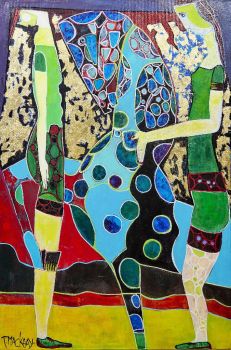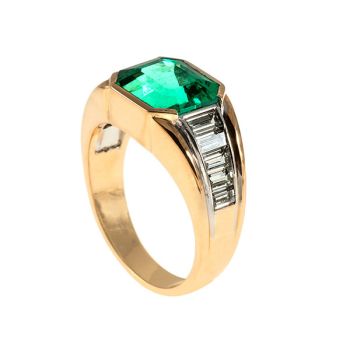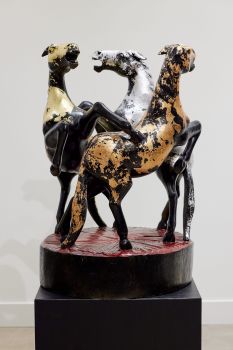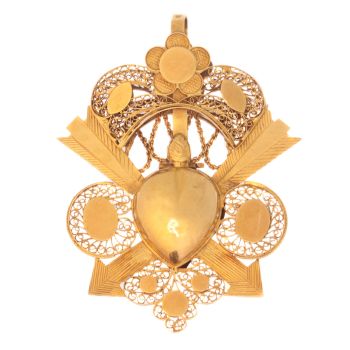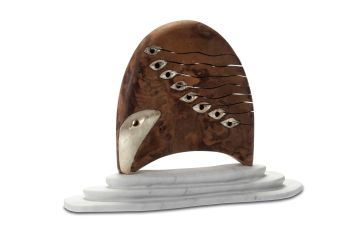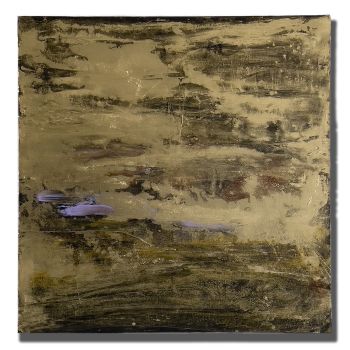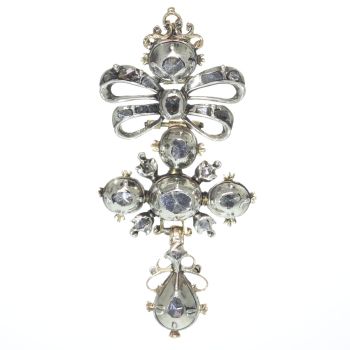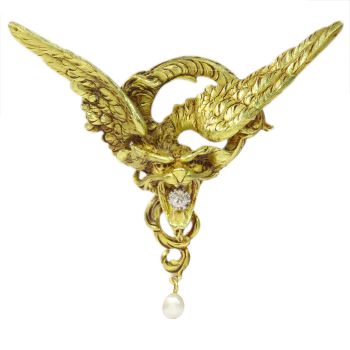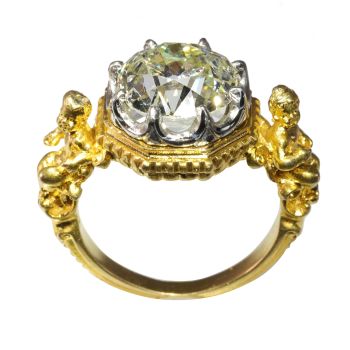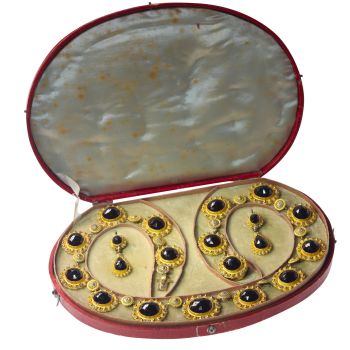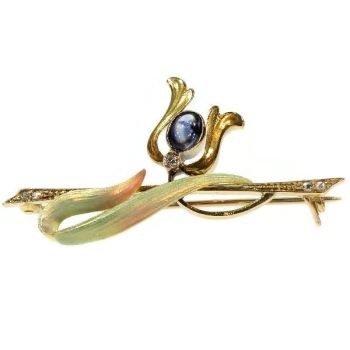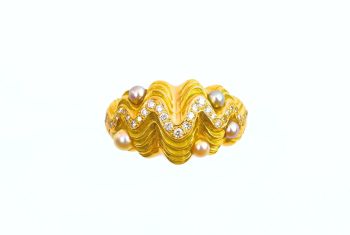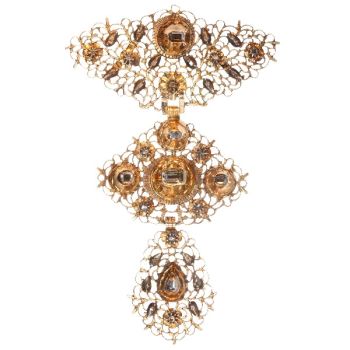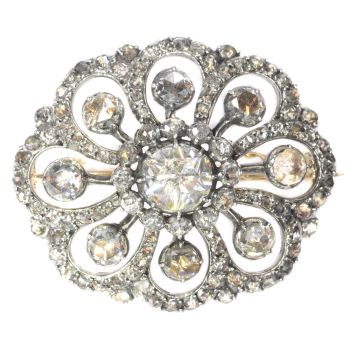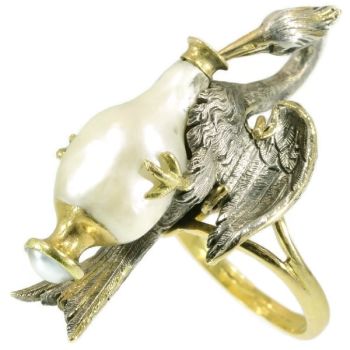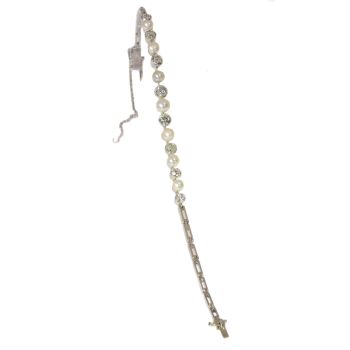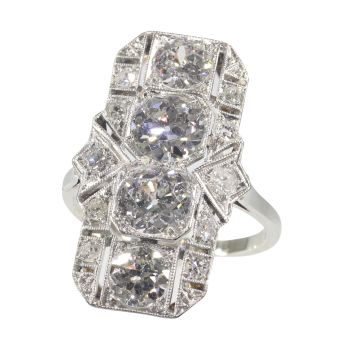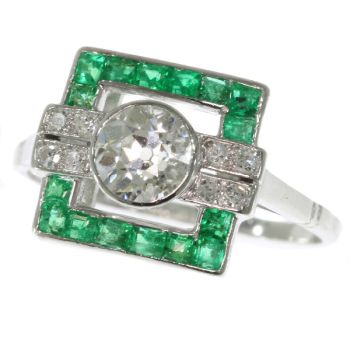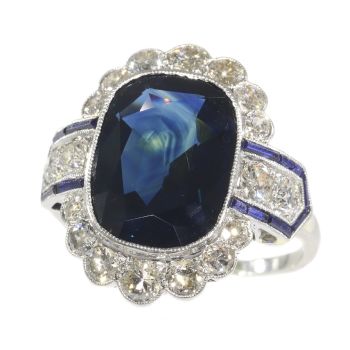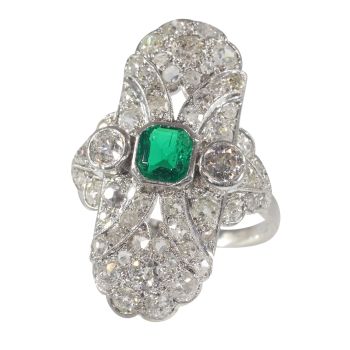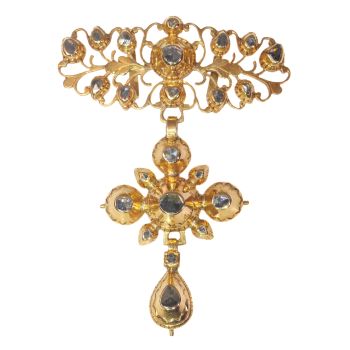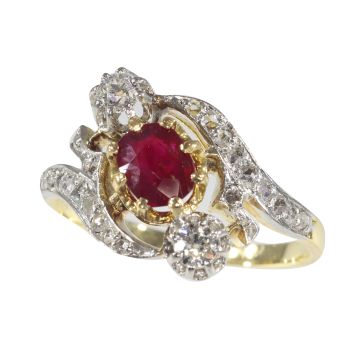Antique 18K French gold locket with enamel work butterfly on flowers 1890
Artista Desconhecido
Adin Fine Antique Jewellery
- Sobre arte
Antique jewelry object group
pendant/locket
Condition
very good condition
more info on our condition scale
Country of origin
France
Style
Victorian - Victorian decorative arts refers to the style of decorative arts during the Victorian era. The Victorian era is known for its eclectic revival and interpretation of historic styles and the introduction of cross-cultural influences from the middle east and Asia in furniture, fittings, and Interior decoration. Victorian design is widely viewed as having indulged in a regrettable excess of ornament. The Arts and Crafts movement, the aesthetic movement, Anglo-Japanese style, and Art Nouveau style have their beginnings in the late Victorian era.
See also: Victorian
more info on styles
Style specifics
The Late or Aesthetic Victorian Period - Experts divide the reign of Queen Victoria, also called The Victorian era (1837-1901) into three periods of about twenty years each; The Romantic Victorian Period (1837 - 1860), The Grand Victorian Period (1860 - 1880), and the Late or Aesthetic Victorian Period (1880 - 1901).
We consider this to be of The Late or Aesthetic Victorian Period.
Jewelry of this period is changing back from heavy to more smaller, romantic pieces with often whimsical motifs. Jewelers using diamonds and bright gemstones in elaborated and fine feminine pieces.
Period
ca. 1890
Events & facts of this era, poetry of this era, fashion of this era.
Source of inspiration
Mother Nature
Theme
butterfly on flowers
Material
18K pink gold (touchstone tested)
more info on precious metals
Technique
Enamelling is an old and widely-adopted technology. The ancient Egyptians applied enamels to pottery and stone objects. The ancient Greeks, Celts, Russians, and Chinese also used enameling processes on metal objects. Enamel is the colorful result of fusing powdered glass to a substrate by firing, usually between 750 and 850 degrees Celsius. The powder melts and flows and hardens to a smooth, durable vitreous coating on metal, glass or ceramic. According to some sources, the word enamel comes from the High German word smelzan (to smelt) via the Old French esmail. Used as a noun, "an enamel" is a usually small decorative object, coated with enamel coating, such as a champlevé or a cloisonné (different techniques).
Extra information
Butterfly - Artistic depictions of butterflies have been used in many cultures including Egyptian hieroglyphs 3500 years ago. In the ancient Mesoamerican city of Teotihuacan, the brilliantly colored image of the butterfly was carved into many temples, buildings, jewelry, and emblazoned on incense burners in particular. Today, butterflies are widely used in various objects of art and jewelry: mounted in frames, embedded in resin, displayed in bottles, laminated in paper, and used in some mixed media artworks and furnishings. Butterfly symbolism - A butterfly was seen in Japan as the personification of a person's soul; whether they be living, dying, or already dead. One Japanese superstition says that if a butterfly enters your guestroom and perches behind the bamboo screen, the person whom you most love is coming to see you. The Russian word for "butterfly", bábochka, also means "bow tie". It is a diminutive of "baba" or "babka" (= "woman, grandmother, cake"), whence also "babushka" = "grandmother". The ancient Greek word for "butterfly" is psyche, which primarily means "soul" or "mind". According to Mircea Eliade's Encyclopedia of Religion, some of the Nagas of Manipur trace their ancestry from a butterfly. In Chinese culture, two butterflies flying together symbolize love. Also, Butterfly Lovers is a famous Chinese folktale. In some old cultures, butterflies also symbolize rebirth after being inside a cocoon for a period of time. Some people say that when a butterfly lands on you it means good luck. The idiom "butterflies in the stomach" is used to describe a state of nervousness. (From Wikipedia)
Precious stones
Four half seed pearls
Birthstones
Pearl is the birthstone (or month stone) for June.
more info on birthstones
Hallmarks
The French control mark for 18K gold representing an eagle's head that was in use in France from about 1838.
more info on hallmarks
Dimensions
height 4,35 cm (1,71 inch)
see picture with a ruler in millimeters and inches
Weight
7,80 gram (5,02 dwt)
Adin Reference Nº
22152-0265
Copyright photography
Adin, fine antique jewelleryAdditional information
our latest acquisitions
jewelry glossary
wall of fame
visit us in Antwerp
subscribe to our mailinglist - Sobre artista
Pode acontecer que um artista ou criador seja desconhecido.
Algumas obras não devem ser determinadas por quem são feitas ou são feitas por (um grupo de) artesãos. Exemplos são estátuas dos tempos antigos, móveis, espelhos ou assinaturas que não são claras ou legíveis, mas também algumas obras não são assinadas.
Além disso, você pode encontrar a seguinte descrição:
•"Atribuído a …." Na opinião deles, provavelmente uma obra do artista, pelo menos em parte
• “Estúdio de…” ou “Oficina de” Em sua opinião um trabalho executado no estúdio ou oficina do artista, possivelmente sob sua supervisão
• "Círculo de ..." Na opinião deles, uma obra da época do artista mostrando sua influência, intimamente associada ao artista, mas não necessariamente seu aluno
•“Estilo de…” ou “Seguidor de…” Na opinião deles, um trabalho executado no estilo do artista, mas não necessariamente por um aluno; pode ser contemporâneo ou quase contemporâneo
• "Maneira de ..." Na opinião deles, uma obra no estilo do artista, mas de data posterior
•"Depois …." Na opinião deles uma cópia (de qualquer data) de uma obra do artista
• “Assinado…”, “Datado…” ou “Inscrito” Na opinião deles, a obra foi assinada/datada/inscrita pelo artista. A adição de um ponto de interrogação indica um elemento de dúvida
• "Com assinatura ….”, “Com data ….”, “Com inscrição ….” ou “Tem assinatura/data/inscrição” na opinião deles a assinatura/data/inscrição foi adicionada por outra pessoa que não o artista
Você está interessado em comprar esta obra de arte?
Artwork details
Related artworks
Unknown artist
Salver or Tazza with orange glass, jelly and custard glasses.1750 - 1755
Price on requestPeter Korf de Gidts - Antiquairs
1 - 4 / 12- 1 - 4 / 24
- 1 - 4 / 24
- 1 - 4 / 9
- 1 - 4 / 24
- 1 - 4 / 12

